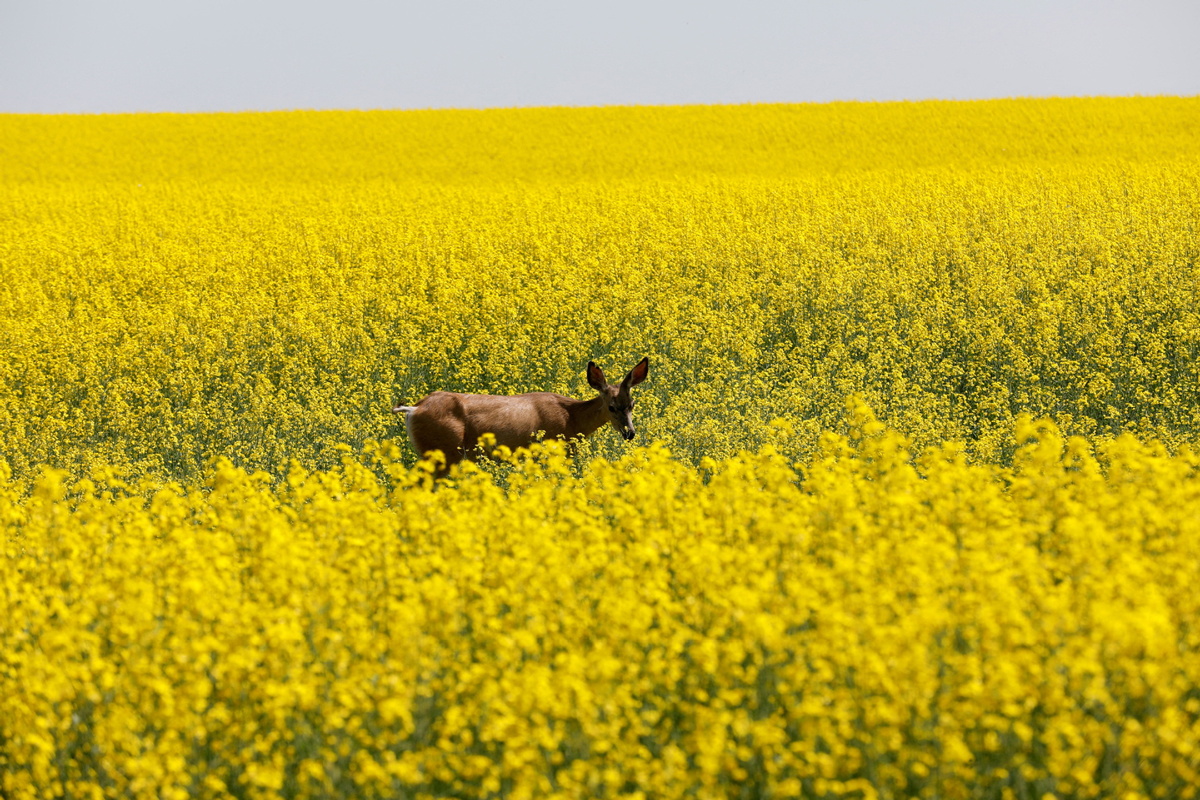Canada's canola headed back to China


The outlook of Canada's canola industry has brightened with China lifting a three-year ban on imports.
In early 2019, Chinese customs blocked some imports of the agricultural product from Canada after repeatedly finding a dangerous, hazardous organism inside.
The licenses for importing canola seeds were suspended for two major Canadian canola exporters, Richardson Milling and Viterra Canada, in March 2019.
On Wednesday, the Chinese customs website updated a list showing the two Canadian companies are now allowed to export to China.
Canada's Federal Trade Minister Mary Ng and Agriculture Minister Marie-Claude Bibeau issued a joint statement Wednesday about regaining access to the Chinese market.
"We welcome this decision to remove the restrictions and immediately reinstate the two companies to allow them to export Canadian canola seeds," Ng and Bibeau said. "We will continue to work with Canadian canola farmers, businesses, exporters and their communities to defend their interests and support their success at home and in markets abroad, including China."
A trade dispute between Canada and China boiled up in 2019 amid rising diplomatic tensions over Huawei Technologies executive Meng Wanzhou's detention in Vancouver.
Before the trade tensions, the Chinese market made up 40 percent of Canada's canola exports. Canola-seed exports to China were worth about $2.8 billion prior to the bans in 2018, and a free trade deal with China could create 33,000 additional jobs in Canada from increased exports of canola alone, according to the Canola Council of Canada (CCC).
The CCC estimated that the dispute cost the industry between $1.54 billion and $2.35 billion from lost sales and lower prices between March 2019 and August 2020 alone. The seed exports to China fell to $800 million in 2019, $1.4 billion in 2020 and $1.8 billion in 2021.
"This is a positive step forward, restoring full trade in canola with China and ensuring that all Canadian exporters are treated equally by the Chinese administration," CCC President Jim Everson said in a press release. "We will continue efforts to nurture and maintain a predictable, rules-based trade environment."
China, meanwhile, grows its own canola, which could keep trade flows from increasing rapidly, said Johnny Huang, co-founder of Sitonia Consulting.
"China is expected to produce a record volume of canola this year. Soybean production is also estimated to rise this year," said Huang.
Canola seeds are similar in size to poppy seeds but contain about 45 percent oil. Canola plants grow about 3 to 5 feet high and produce yellow flowers. Canola is primarily used to make cooking oil, but also can a be used as livestock feed and to make biodiesel.
Canada is the world's largest producer of canola. It is one of the most widely grown crops in Canada and it is currently trading at record highs as the war in Ukraine drives up prices for agricultural commodities.
Reuters contributed to this story.

































